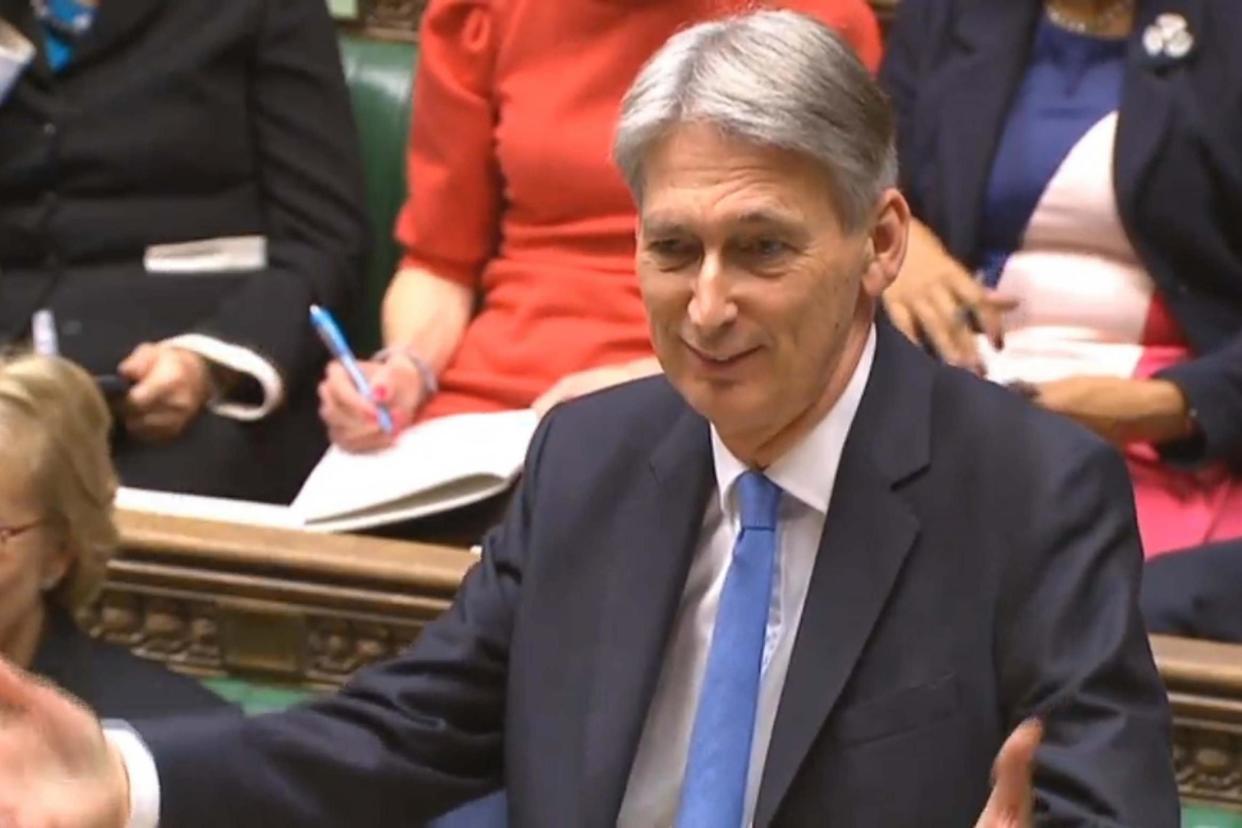Russell Lynch: Philip Hammond’s ‘Augustinian’ tricks kick bad news into long grass

Lord make me chaste — but not yet.” The most famous quotation from Saint Augustine’s Confessions is written through this Budget like a stick of rock as Philip Hammond gained a taste for spending in his second Budget.
After all, it is the season of goodwill. Fuel duty freeze? There’s £830 million. Drinkers? Here’s £230 million for you. First time buyers get a £560 million cut and there’s billions more for the NHS.
Overall the Budget gives away £25 billion over the next five years as the Chancellor pulls out every trick in the book and draws the acid scepticism of his fiscal forecaster Robert Chote in virtually every other sentence of the Office for Budget Responsibility’s blue book. Chote notes the “Augustinian” tendency for governments to announce near-term giveaways, but with the promise that the cost will be recouped by takeaways years down the line, and concludes that “this Budget has followed suit”.
True to form, borrowing rises in every year of the forecast apart from 2022-23, when we suddenly see a £3.1 billion cut and flat current spending in a belated nod to fiscal rectitude. It was notable in the speech that Hammond referred to meeting his target on cutting the deficit to 2% of GDP by 2021 and cutting net debt, but wisely he didn’t mention his previous ambition of eliminating it by the middle of the next Parliament, because he hasn’t a hope.
Besides, Hammond’s priority is to keep Jeremy Corbyn out of Downing Street within months, so 2022 is for the birds.
Why else, then, the shameless spending of the savings made by reclassifying housing associations as private sector bodies, giving him £3.7 billion a year on average to splurge? Again the dripping sarcasm of Chote, a former FT economics editor used to dealing harshly with such tricks: “It is hard to argue that the change in statistical treatment reduces the de facto exposure of the Government to these organisations, were they to fall into financial difficulty, nor does it alter their use as vehicles to deliver the Government’s social housing policies.”
It’s a convenient accounting fiddle — no more, no less. If you look at the “like for like” comparisons in the OBR’s book (inexplicably glossed over by the Chancellor) which strip out the effect of the HA move, you’ll find an extra £53.2 billion in borrowing.
Out of political necessity, Hammond is spending like a sailor to prop up a deeply unpopular Government while just about sticking to his rules. But it’s surely worrying that he’s already halfway through his “Brexit reserve” 16 months before we go. And the bogeyman in the OBR numbers is that it’s taken no account of Brexit, because the watchdog doesn’t know what a potential deal or no deal looks like.
Its productivity downgrades for the UK have already done enough damage, so much so that it judges there’s a 35% chance of missing the target now.
Its scenario for “weak productivity” (including the plunging investment that might occur in a “no deal” scenario, for instance), would put him in breach, and leave “Spreadsheet Phil” piling on yet more borrowing.
It’s a Budget with political expediency, questionable fiscal discipline — and short-term survival at its heart.

 Yahoo News
Yahoo News 
